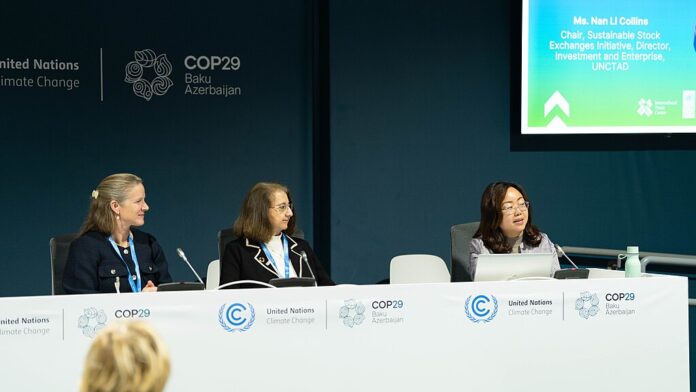COP29 clean energy recovery: Renewable solutions driving post-conflict economic resilience and stability
At COP29 in Baku, global leaders, experts, and policymakers are converging to explore how clean energy can play a transformative role in stabilising regions ravaged by conflict. The conference has underscored that the benefits of renewable energy extend far beyond environmental sustainability—it has the potential to be a catalyst for economic recovery and social resilience in areas struggling with the aftermath of war.
This year’s discussions at COP29 have revealed a growing recognition that sustainable energy solutions can be a game-changer for communities attempting to rebuild after conflict. By reducing reliance on costly and often unpredictable foreign energy imports, renewable resources like solar and wind power offer conflict-affected areas not just a path to recovery, but also a foundation for long-term autonomy and stability.
Clean Energy as a Catalyst for Resilience
The sentiment echoed across various panels at the conference highlights that renewable energy is more than just a green initiative; it is an empowering tool for regions in crisis. Hafed Al-Ghwell, a North African geopolitical expert, spoke to Arab News about the crucial role clean energy plays in promoting self-sufficiency. “Clean energy isn’t just about generating power; it’s about autonomy and resilience,” he emphasised. For regions heavily reliant on unstable foreign fuel supplies, transitioning to renewables could provide a steady and reliable source of power, reducing external dependencies and fostering local economic growth.
The focus on conflict zones was further amplified by Gilles Carbonnier, Vice President of the International Committee of the Red Cross (ICRC). He pointed out that communities most at risk from climate change are often those already suffering from ongoing conflicts. According to Carbonnier, “The people who are most affected by climate change risks are those who live in zones of armed conflict and have the least capability to adapt and face these risks.”
The ICRC is already at the forefront of these efforts, deploying solar power systems to support vulnerable communities across the Sahel, the Horn of Africa, and the Middle East. These areas are not only battling the immediate challenges of armed conflict but also grappling with the severe impacts of climate change, such as prolonged droughts and extreme weather events. By integrating renewable energy into humanitarian aid, the ICRC aims to provide immediate relief while fostering resilience against future crises.
Building a Sustainable Future Amidst Crisis
The conversation at COP29 has made it clear that embracing renewable energy in conflict zones isn’t just a matter of environmental sustainability—it’s a strategic move towards stability and recovery. By empowering communities with access to clean, reliable energy, these initiatives are helping to create a more resilient foundation for future growth.
As the conference unfolds, participants are urging the international community to direct more resources towards conflict-affected regions, where the impact of climate change is felt most acutely. The call is for a collaborative approach that brings together governments, NGOs, and private sector stakeholders to expand the reach of renewable energy projects.
Saudi Arabia, which has been championing renewable energy investments as part of its Vision 2030 strategy, has also voiced support for these efforts. The Kingdom’s focus on diversifying its energy sources aligns with the global shift towards sustainability, demonstrating that clean energy is not only about reducing carbon emissions but also about fostering socio-economic resilience in the world’s most vulnerable regions.
As the world looks towards a greener future, the message from COP29 is clear: renewable energy holds the key to not just combating climate change but also rebuilding lives and economies devastated by conflict. By harnessing the power of clean energy, nations can offer hope and stability to millions of people living on the frontlines of climate and conflict challenges. COP29 Clean Energy Recovery emphasizes the transformative potential of renewable energy in supporting post-conflict recovery and long-term resilience.
